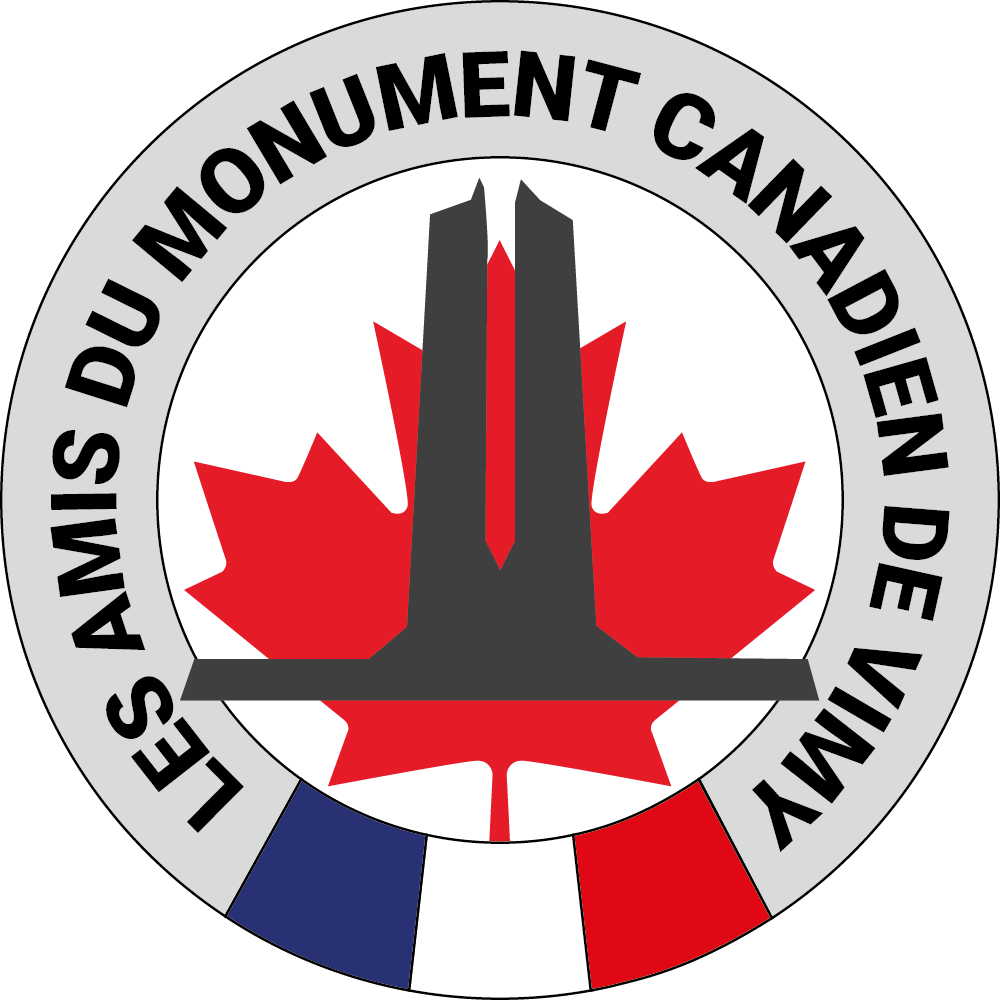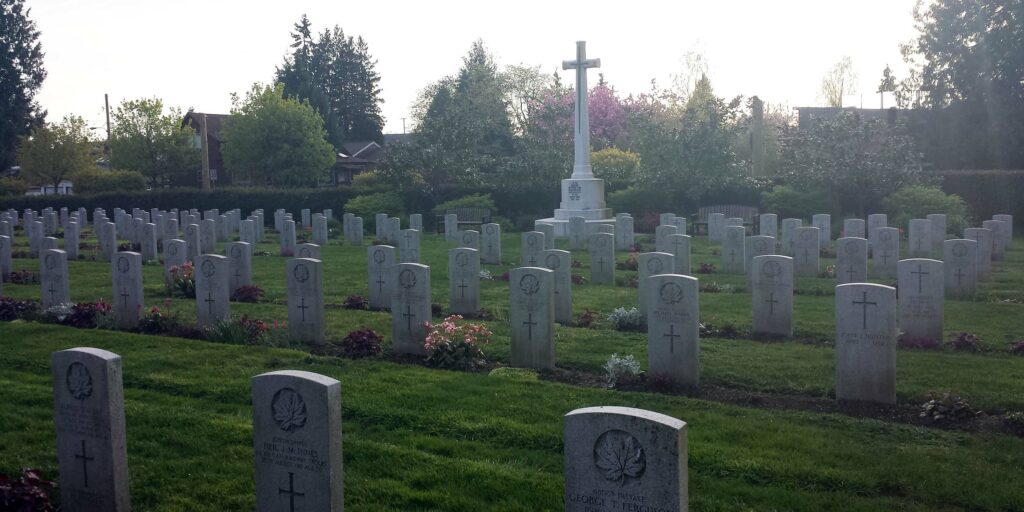
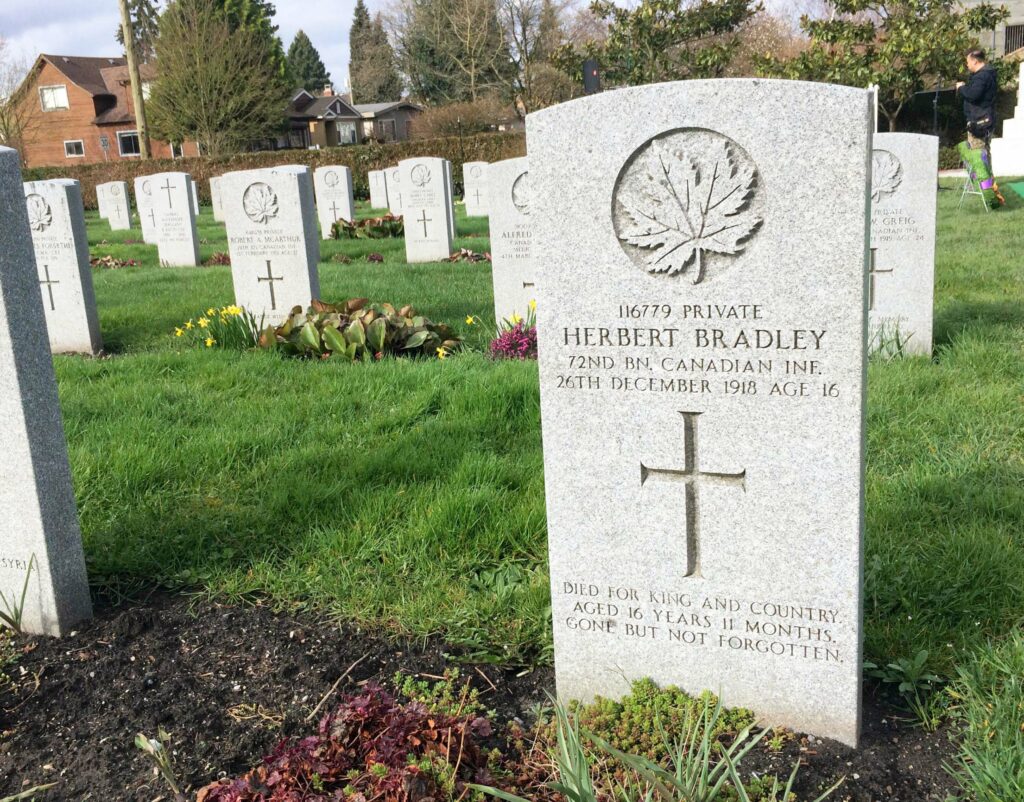
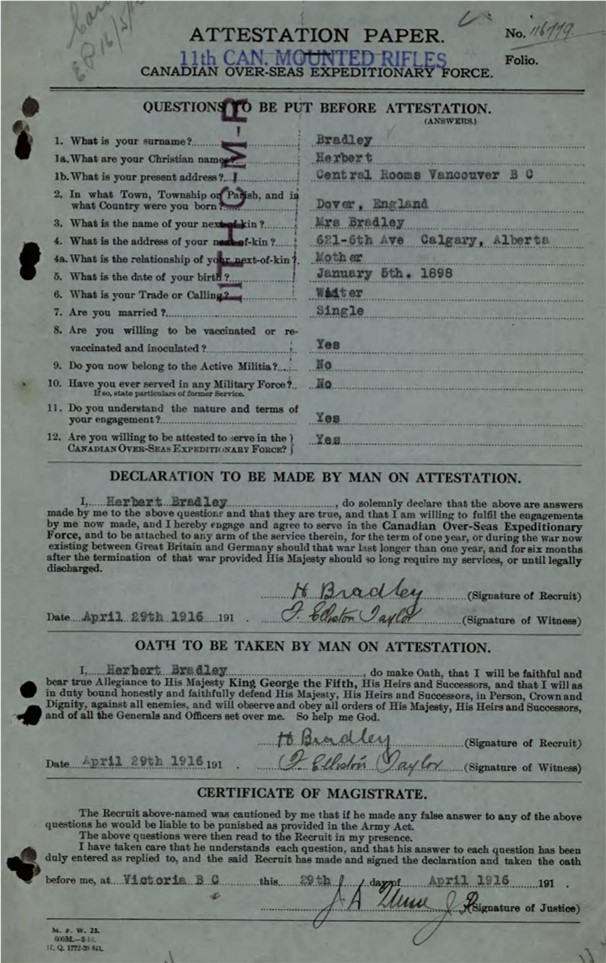
Herbert Bradley was born on January 5th, 1902, in Dover (England). In 1916 he lived in Vancouver, British Columbia. As he wanted to join the fighting Canadian forces in Europe, he went to Victoria, the state capital, on April 29th, in order to enlist. To be accepted, he decided to lie about his date of birth by claiming to have been born on January 5th, 1898 : you had to be at least 18, but he was only 14 !
On July 25th he arrived in England after a few months of training, and was posted to the 72nd Battalion (Seaforth Highlanders of Canada) in January 1917. The Battalion was in position of Vimy Ridge, preparing the big spring offensive. The organization of a raid was decided in order to strenghthen the grip on the no man’s land and especially to promote the training of the companies that needed to consolidate their cohesion.
On the morning of March 1st, 1917, PrivateBradley was ready for the attack. He had been spending two days in alert with his company, because the use of gas shells was impossible due to strong winds. The raid began with the firing of the first wave of gas at 5 a.m. The German response was not long in coming :a targeted bombardment on Canadian lines hit a few gas canisters waiting there, and gas began to invade the positions. The second gas wave was launched in spite of wayward winds that sent the toxic cloud back onto the Canadian lines. At this time, at 5.45 a.m ., the men of the 72nd Battalion came out of their trench and attacked under the fire of German heavy artillery and machine guns.
On the logbook of the Battalion was noted on March 1st that many men were evacuated because they had been gassed. Herbert Bradley meanwhile, was evacuated to aid stations in the rear, and finally sent to N°22 General Hospital in Camiers. Doctors saw the effects of gas on Herbert Bradley, but discovered his true age too. After a convalescence of 5 months he was discharged and sent back to Canadain August 1917. In October he underwent a medical check-up in order to have his disability noted.He thenn stated that he often complained of weakness, indigestion, sensitivity to cold, occasional fainting and chronical fatigue. On December 26th, the day after Christmas, he died of a peumonia directly linked to his deteriorated state of health .
His body lies in Mount View Cemetery, Vancouver.
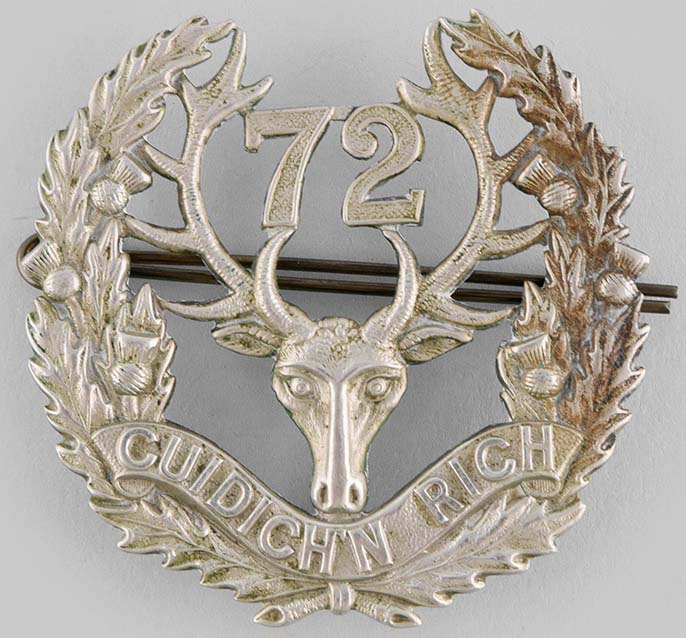
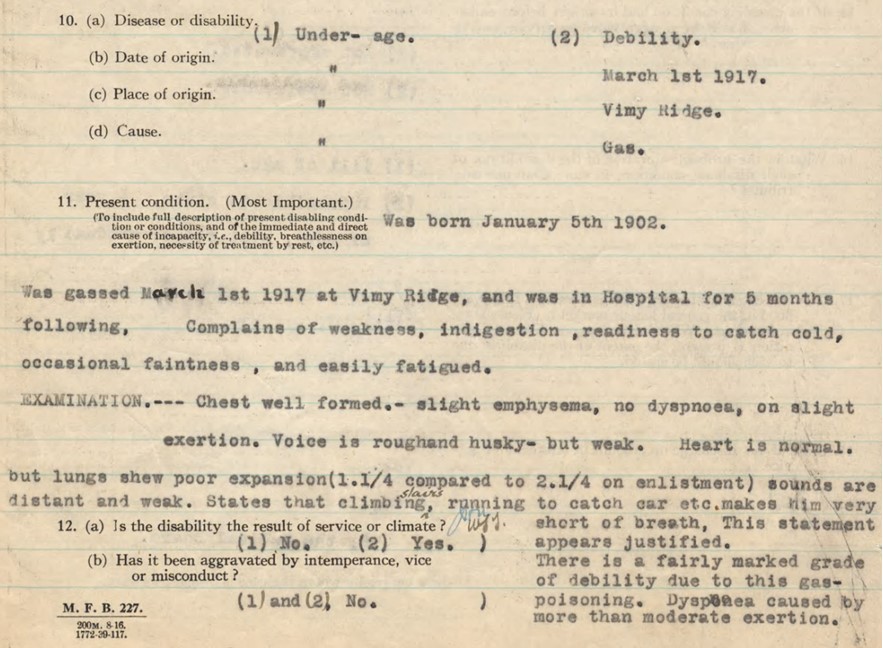
https://www.veterans.gc.ca/fra/remembrance/memorials/canadian-virtual-war-memorial/detail/420694
https://www.bac-lac.gc.ca/fra/decouvrez/patrimoine-militaire/premiere-guerre-mondiale/dossiers-personnel/Pages/Recherche.aspx
Translated by Jacques Paltani
